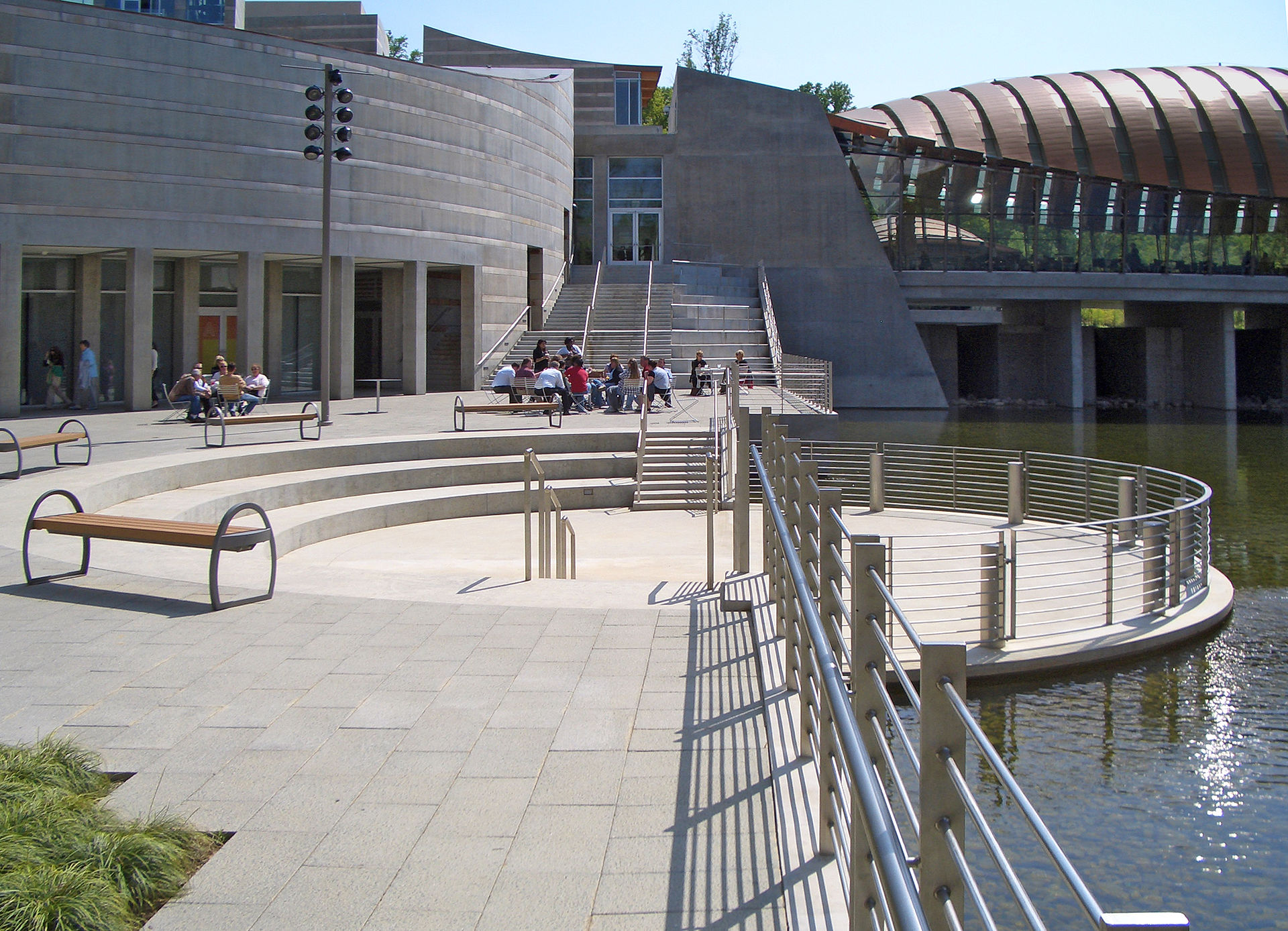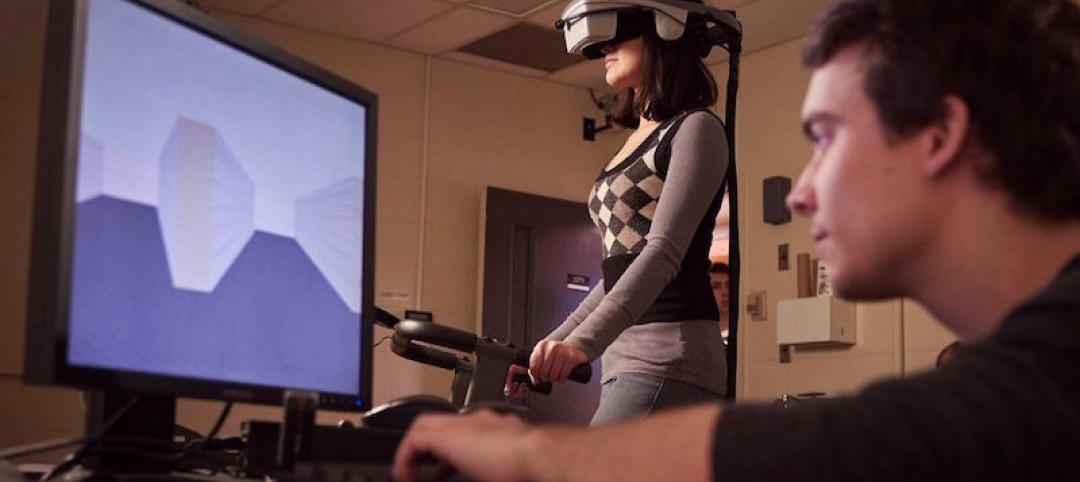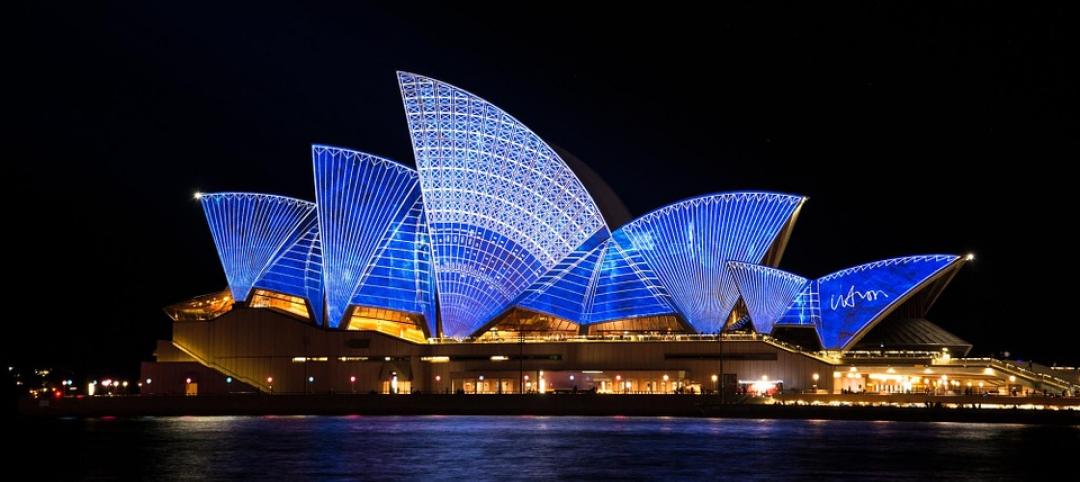The Board of Directors of the American Institute of Architects (AIA) voted to award the 2015 AIA Gold Medal to Moshe Safdie, FAIA, whose comprehensive and humane approach to designing public and cultural spaces across the world has touched millions of people and influenced generations of younger architects.
The AIA Gold Medal, voted on annually, is considered to be the profession’s highest honor that an individual can receive. The Gold Medal honors an individual whose significant body of work has had a lasting influence on the theory and practice of architecture. Safdie will be honored at the 2015 AIA National Convention in Atlanta.
Born in Haifa, Israel in 1938, Safdie moved with his family to Montreal in 1953. He studied architecture at McGill University, and after graduation worked with AIA Gold Medalist Louis Kahn, FAIA, in Philadelphia. He returned to Montreal to work on Habitat ’67, for Montreal’s 1967 World’s Fair, which consisted of a series of 158 stacked and terraced apartments.
Safdie then began a series of teaching posts that culminated with his appointment as the director of the urban design program at the Harvard Graduate School of Design from 1978-84. Since 1978, Safdie has been based in Boston while remaining a citizen of Israel, Canada, and the United States. Safdie established a Jerusalem office in 1970 and another in Shanghai in 2011.
Many of Safdie’s Asian and Middle Eastern projects exhibit a sense of timelessness closely associated with his mentor, Kahn. Safdie once told Tablet Magazine that if architecture is good, “then it will feel obvious, and like it’s always been there.” In Israel, his Mamilla Center blends in contextually and materially with a 19th century Jerusalem neighborhood, offering people range of dynamic gathering spaces and enhancing the contemporary urban experience.
In Punjab, India, his design for the Khalsa Heritage Centre (a museum of Sikh history and culture) shows visitors an elemental juxtaposition of stone and concrete with water. The building is made up of a rich mix of orthogonal geometry and curvilinear forms, organic and flowing in some places and rigid and rational in others. This mixture alludes to the primeval determination the earliest builders felt when they conspired to put together posts, lintels and right angles in defiant opposition to gravity, and also the natural world they struggled to endure against.
This is a pattern seen throughout Safdie’s architecture: the broad, explicit combination of grid-based forms with fluid curves. Safdie’s work naturally melds opposing forms— fusing arcs into squares, spheres into cubes, and ovals into rectangles—to create emotionally evocative architecture.
In her nomination letter, Boston Society of Architects president Emily Grandstaff-Rice, AIA, wrote: “Moshe Safdie has continued to practice architecture in the purest and most complete sense of the word, without regard for fashion, with a hunger to follow ideals and ideas across the globe in his teaching, writing, practice and research.”
Some of Safdie’s most notable works include:
The Salt Lake City Main Public Library, a triangular glass library intersected by a crescent-shaped wall which forms an urban room and leads visitors up to an observation deck with views of the nearby Wasatch Mountains. The transparency offered by the glass library volume and the gracefully arcing wall and public space it forms evokes a dramatic contrast of enclosure and openness.
The Yad Vashem Holocaust History Museum in Jerusalem, a concrete prism carved into Mt. Herzl that takes visitors on a linear, narrative journey that explores the individual identities of Holocaust victims, finally giving way to an observation deck with broad views of Jerusalem below, symbolizing the collective future of the Jewish people.
Marina Bay Sands in Singapore is a high-density urban district that serves as a gateway to Singapore, anchors the Singapore waterfront, and provides a dynamic setting for a vibrant public life. The project’s most dramatic feature is the 3-acre SkyPark, which connects the hotel’s three 55-storey towers at the top, spanning from tower to tower and cantilevering 213 feet beyond. Its mixed-use program (theater, museum, hotel, convention center) makes it nearly a city unto itself.
The Crystal Bridges Museum of American Art in Bentonville Ark., an idyllic village of copper-clad shells containing American art. This village of forms creates a series of dams and bridges over a reservoir fed by nearby Crystal Springs, intimately revealing the natural landscape and huddling around the water like a group of timeworn river stones.
Safdie is the 71st AIA Gold Medalist. He joins the ranks of such visionaries as Thomas Jefferson (1993), Frank Lloyd Wright (1949), Louis Sullivan (1944), Le Corbusier (1961), Louis I. Kahn (1971), I.M. Pei (1979), Thom Mayne (2013), and Julia Morgan (2014). In recognition of his legacy to architecture, his name will be chiseled into the granite Wall of Honor in the lobby of the AIA headquarters in Washington, D.C.
Related Stories
Designers | Feb 1, 2017
Netflix design documentary series to feature Bjarke Ingels
Abstract: The Art of Design will delve into the artistic processes of various influential designers.
Architects | Jan 27, 2017
The Enterprise Rose Architectural Fellowship and Lawrence Scarpa, FAIA, honored with the 2017 Collaborative Achievement Award
Lawrence Scarpa, FAIA and the Enterprise Rose Architectural Fellowship receive the 2017 Collaborative Acievement Award.
Architects | Jan 26, 2017
Alan Greenberger, FAIA, honored with the 2017 AIA Thomas Jefferson Award
The award honors significant contributions to public architecture.
Architects | Jan 24, 2017
Politicians use architectural renderings in bid to sell Chicago’s Thompson Center
The renderings are meant to show the potential of the site located in the heart of the Chicago Loop.
Architects | Jan 23, 2017
Why corporate branded environments matter
A branded environment has the potential to create a long-lasting impression for your intended audiences.
Architects | Jan 19, 2017
Harley Ellis Devereaux merges with Deems Lewis McKinley
The combination is expected to bolster HED’s presence in northern California and the K-12 sector.
Architects | Jan 13, 2017
Best in Architecture: 23 projects win AIA 2017 Institute Honor Awards
The Shigeru Ban-designed Aspen Art Museum and the General Motors Design Auditorium by SmithGroupJJR are among the architecture, interior architecture, and urban design projects to win.
Designers | Jan 13, 2017
The mind’s eye: Five thoughts on cognitive neuroscience and designing spaces
Measuring how the human mind responds to buildings could improve design.
Building Materials | Jan 9, 2017
Architects and researchers are developing new techniques for building in space
As setting foot on Mars becomes a more realistic goal, the search for how to best develop Architecture for the Red Planet is heating up.
Architects | Jan 5, 2017
U.S. architects can now earn licenses to practice Down Under
NCARB finalizes reciprocal agreement with Australia and New Zealand.

















